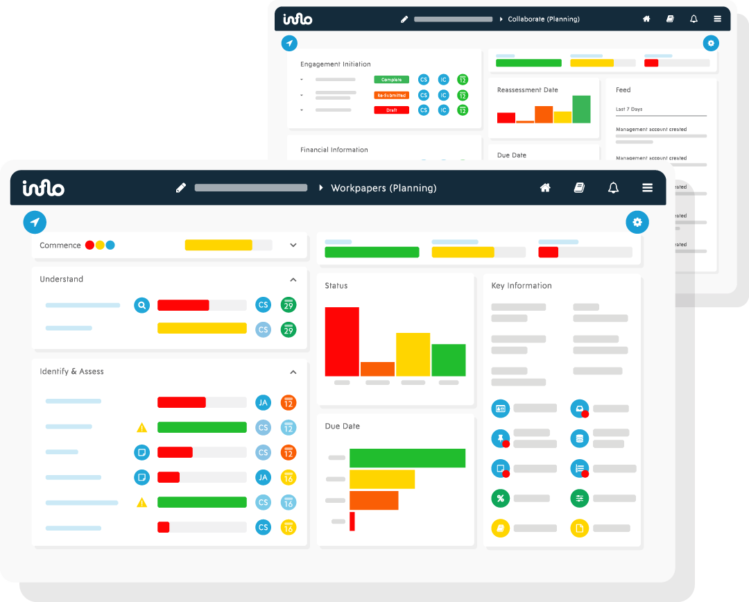In this phase of the implementation journey, Abbie Goodliff, Assistant Assurance Manager at Duncan & Toplis, shares insights into the firm’s pilot experience, detailing the integration of Inflo’s cloud-based Workpapers, the benefits realized, and the challenges overcome as they enhance their audit processes.
Over the years, our firm has integrated several modules within the Inflo platform into our operations, including Collaborate, Detect, Revenue Cascade, and Ingest. As we evolved, we recognised the need to transition our workpapers from a desktop-based system to a cloud-based solution – this led us to explore Inflo Workpapers.
The desktop-based workpapers solution we were using had its share of frustrations. Updates and bug fixes often lagged, causing delays and inefficiencies. This was a significant pain point for us, as any downtime or workaround meant lost time and productivity. Additionally, we were intrigued by Inflo Workpapers’ innovative approach to data analytics, which promised to elevate our auditing processes beyond traditional methods.
Our pilot experience with Inflo Workpapers has been promising. The workshops were meticulously organised, tailored to our feedback and questions at each stage. I recall a planning workshop where I needed clarity on the risk and response advanced screen. David, from Inflo, made sure to allocate time at the end of the call to address this, which allowed me to complete the planning review and proceed directly to the risk response phase right after the meeting.
We are currently running three pilots and have just completed the audit for one of them. Taking the time to tailor the work programmes and focus on the risks at the planning stage significantly reduced some of the audit fieldwork. This proactive approach has streamlined our processes and enhanced the overall audit experience.
Several features of Inflo Workpapers have proven particularly valuable. The workflow from preparer to reviewer and Responsible Individual (RI) is intuitive and easy to follow. The ability to filter for my initials and “in review” status helps me quickly identify and address the items needing my attention. This has simplified our review process and improved our workflow efficiency.
While we encountered a few minor bugs during the pilot, these were promptly addressed in our workshop calls with the Inflo team. We also noted that during the response to risk phase, some work programmes were unnecessary, while others needed to be added. We expect this to be resolved with further team training and a deeper understanding of the risk and response functions.
Inflo Workpapers has positively impacted our audit process in several ways. The system encourages our team to complete the work programmes during the audit fieldwork rather than as a checklist exercise at the end. This approach has given the team a much better understanding of the audit’s progress and helped identify areas requiring further testing earlier in the process.
The support and expertise provided by Inflo have been exceptional. We have had regular catch-ups and workshops with Inflo, especially during the live engagement phase. These sessions were well organised and timed realistically with our audits. Having David from Inflo added to our engagements as Inflo support has also been beneficial. He reviews any queries raised on our smart sheet feedback document and tailors his guidance to our specific engagements.
When comparing Inflo Workpapers to our previous platform, the differences in user experience and functionality are striking. Nothing during the pilot has caught us off guard, mainly because our team was already familiar with Inflo through the use of its other modules. This familiarity has smoothed the transition and allowed us to focus on integrating the new workpaper functionality.
Looking forward, the critical factors in our decision to continue with Inflo Workpapers will include how well we can adapt our existing templates and workflows to the new system and the functionality offered for group audits.


















